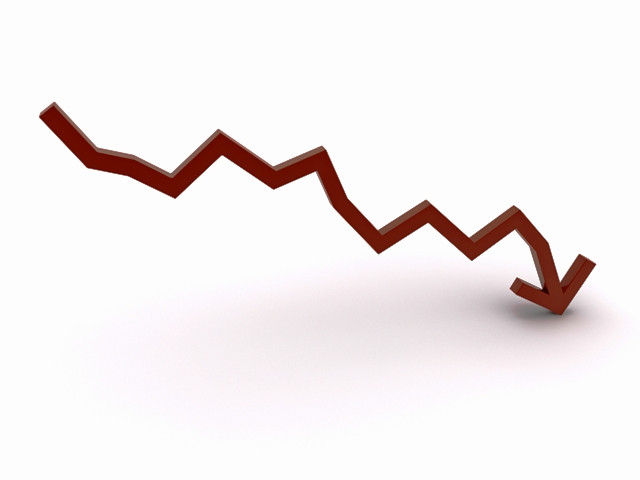Economic burden: National budget deficit swells to all-time high
Budgets of almost all heads overshot by a distance.

Lax fiscal management, deep-rooted corruption in the energy sector and slippages in revenues have pushed the national budget deficit to an all-time high of Rs1.76 trillion, or a whopping 8.5% of the total size of the economy in fiscal year 2011-12, according to official documents.
The deficit – that is, the gap between the country’s revenue and expenditure – also includes Rs391 billion in payments the government made on account of retiring the commodity and circular debts from previous years, the documents reveal.
Economic managers are putting the blame for the highest-ever deficit recorded in the country’s history on the water and power ministry, the provinces, particularly Punjab and Sindh, for their inability to generate surpluses, and the Federal Board of Revenue, which missed its target by a wide margin of Rs71 billion.
The deficit is Rs904 billion, or 4.5% higher than the original budget estimates. It is also Rs227 billion, or 1.1%, higher than the revised estimates the finance ministry tabled in parliament along with the budget documents.
Hoping that the four federating units would save Rs125 billion from their budgets and the US would reimburse Coalition Support Fund receipts, the federal government kept the revised deficit numbers at 5.5% of the GDP, the documents stated.
This also caused Rs478 billion in expenditures over and above the approved budget by parliament. From the 8.5% deficit, the federal government’s deficit was 8.3 % of the GDP, or Rs1.71 trillion. The federal deficit target was 4.7% of GDP.
Economic managers maintained that, despite all odds, they tried to consolidate macroeconomic stability, put in efforts to mobilise domestic resources and bring down inflation, and tried to work with provinces for ensuring better fiscal discipline at the provincial level, stated the documents.
The documents recognised that Pakistan’s economy continued to face many external and internal challenges during fiscal year 2011-12, including the euro zone crisis, which affected exports. The government admitted that the energy sector management also remained an issue, while the provincial fiscal and tax management also adversely affected the overall budget deficit of the country.
“Slippages in FBR revenues, lower petroleum levy collection and less non-tax revenues mainly on account of the CSF led to reduction in gross revenues,” the documents stated.
Furthermore, interest payments also exceeded estimates by Rs98 billion, a Rs13 billion excess in PSDP and, surprisingly, Rs50 billion in unidentified expenditures, further widened the deficit, stated the official documents.
The FBR’s tax-to-GDP ratio remained 9.2%, while indirect taxation surged to 62% of total taxes, showing the inability of the government to expand the income tax base.
Expenditures review
Against the approved budget of Rs2.5 trillion, the federal government ended up spending almost Rs3 trillion, higher by Rs478 billion, according to the documents.
Against the budgeted current expenditures of Rs2.2 trillion, the actual expenses remained at Rs2.67 trillion mainly because of what Finance Minister Dr Abdul Hafeez Shaikh called “one-off debt payments of the past years”.
Interest payments, the largest expenses head, exceeded estimates by Rs98 billion, at Rs889 billion, due to massive borrowings to finance the historical deficit.
Defence spending exceeded the target by Rs12 billion and remained at Rs507 billion, the third largest expense.
The second biggest head, of expenditures, was for subsidies, at Rs558 billion, higher by Rs378 billion. This was because of clearance of the past arrears as the current subsidies remained at Rs167 billion.
Expenses for running the civilian government also crossed the red line by Rs9 billion and stood at Rs227 billion, due to an increase in the size of the federal government, as well as an increase in salaries of employees.
Published in The Express Tribune, August 19th, 2012.



















COMMENTS
Comments are moderated and generally will be posted if they are on-topic and not abusive.
For more information, please see our Comments FAQ